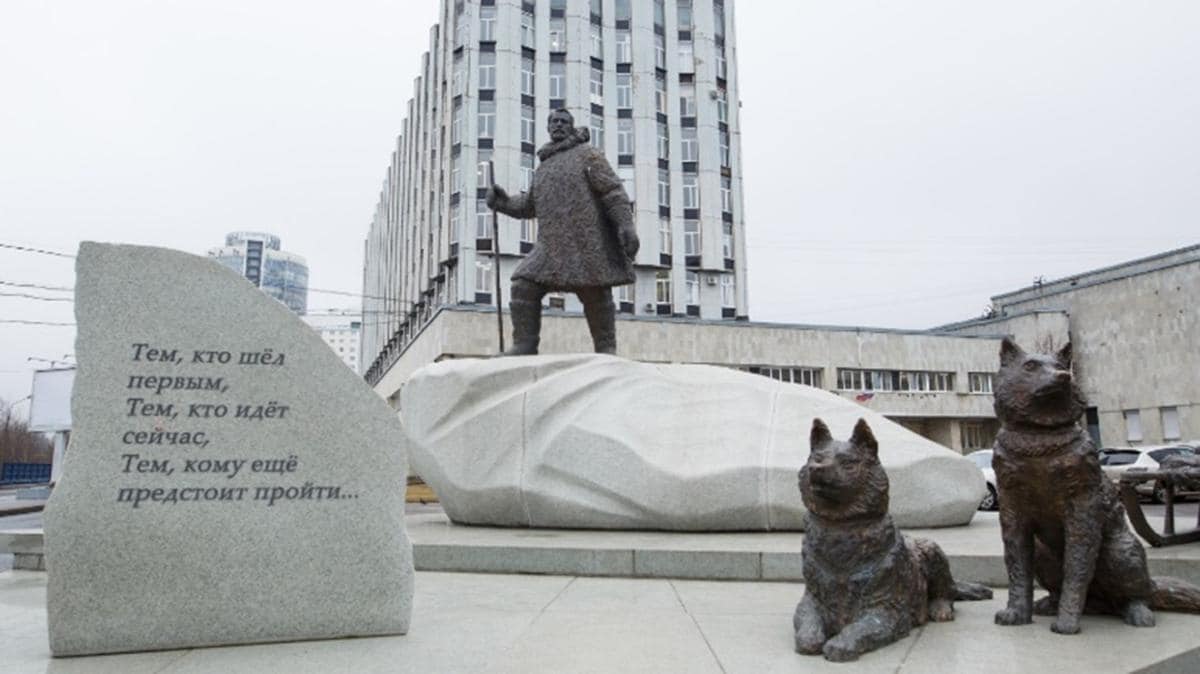On August 27, 2024, Russian media outlet RosBalt published an article commenting on the growing cooperation between Russia and China in the development and research of the Arctic and argues that even with Sweden and Finland joining NATO, the U.S. will hardly be able to counter joint Russia-China efforts to explore the region.
Russian news agency TASS further stated that "Chinese and Russian scientists have been successfully cooperating in Antarctica, and now it is high time to expand this cooperation to the North Pole."[1]
It is worth noting that, in July 2024, Deputy Secretary of Defense Kathleen Hicks said: "We've seen growing cooperation between the PRC and Russia in the Arctic commercially, with the PRC being a major funder of Russian energy exploitation in the Arctic." Hicks then added that There is also growing military cooperation, "with Russia and China conducting joint exercises off the coast of Alaska."[2]
In fact, on July 25, 2024, the Chinese media outlet Global Times wrote: "China and Russia... held their eighth joint aerial strategic patrol that saw bombers of the two countries flying over the Bering Sea for the first time, also marking the farthest place Chinese bombers have reached in a strategic patrol mission... If the US feels uncomfortable seeing a Chinese military presence on its doorstep, it should get used to it, or reflect on its own military presence on China's doorstep, which poses much greater security concerns to China."[3]

The Arctic and Antarctic Research Institute (AARI). The text on the monument reads as follows: "To those who went first, to those who go now, to those who have yet to go." (Source: AARI website)
Following is the RosBalt article:[4]
China-Russia Joint Research In The Arctic
"... [The] Russian Maritime Collegium,[5] which was established two weeks ago by a decree of Russian President Vladimir Putin... is a collegial body created to pursue national maritime policy, protect national interests and strengthen Russia's defense capabilities in the World Ocean. The Maritime Collegium is headed by Nikolai Patrushev, who, as an aide to the President of the Russian Federation, supervises the issues of national maritime policy.
"In total, the board consists of 52 people, including the heads of the Ministry of Industry and Trade, Ministry of Transport, Ministry of Agriculture, Ministry of Education and Science, seaside regions, the Border Service and the Main Directorate of the General Staff, as well as major companies, the TASS news agency recalls.
"It is important to note that along with the councils for the strategic development of the Navy and for the development and support of Russia's maritime activities, a council for the protection of national interests in the Arctic has also been created within the structure of the Russian Maritime Collegium.
"As RosBalt noted when reporting about the Arctic Salon,[6] which ended last Sunday [taking place August 23-25, 2024] in St. Petersburg, the Northern Capital is for good reason called not only a window to Europe, but also the gateway to the Arctic Circle, the importance of which for Russia is now sharply growing.
"According to Russian presidential spokesman Dmitry Peskov, the Arctic, which is of strategic economic importance to our country, has become a territory of intense competition – this is how he reacted to the U.S. plans to restore its military position in the Arctic and deter Russia and China in the region.[7]
"At the same time, Russian authorities said they were ready to significantly boost cooperation with Beijing in the Arctic Circle. 'To increase economic cooperation further, it is necessary to continue building reliable transportation and logistics corridors and jointly utilize the opportunities of the Northern Sea Route. We are creating a special subcommittee for the development of this global highway,' Russian Prime Minister Mikhail Mishustin said at a meeting with Chinese Prime Minister Li Qiang...[8]
"Leading Russian and Chinese polar organizations have already agreed to conduct joint research in the Arctic. 'Scientists from the Arctic and Antarctic Research Institute, the Chinese Arctic and Antarctic Administration and the Polar Research Institute of China have agreed to start preparing joint scientific projects in the Arctic. The first consultation meetings will begin in the fall of this year,' the press service of the Arctic and Antarctic Research Institute (AARI), located in St. Petersburg, reported last week.
"In particular, Chinese specialists were offered to join the work of the Russian scientific Arctic expedition on the Svalbard archipelago and the North Pole expedition on drifting stations, and they, in turn, invited Russian scientists to join the expedition on the Chinese research icebreaker Xuelong 2.
"The West seriously fears the strengthening of Russia's military power in the Arctic,[9] and there are already calls for NATO to develop a "plan to counter Moscow" in the polar region.
Finland's Drills Near The Russian Border
"Context. On July 22 of this year, the Pentagon published an updated the Arctic Strategy, which states that the U.S. is beginning to view the region as an arena of strategic confrontation due to geopolitical and climatic changes. The document also notes that 'major geopolitical changes are creating the need for a new strategic approach to the Arctic.' In addition to the Ukrainian crisis and the strengthening of cooperation between China and Russia, the Pentagon also lists the accession of Finland and Sweden to NATO as one of those changes.
"The Russian Foreign Ministry regarded the military exercises that took place in Finland near the Russian state border on July 21-26, involving about 1,700 personnel and 300 vehicles, as 'an integral part of NATO's complex provocative efforts to deter Russia.'
"At the same time, the decision of the authorities in Helsinki and Stockholm to join the North Atlantic Alliance will not change Russia's position in the Arctic...
"Finnish Defense Minister Antti Häkkänen said that 'quite large' [amounts of] troops from other NATO countries could be stationed on Finnish territory for a long time. He said that he was referring to situations where there is no real military threat, but there are tensions that fall under NATO's Article 5 (on collective defense). As an example, Häkkänen, according to Finnish media, cited 'tensions on the border with Russia,' which he said could necessitate additional joint major NATO exercises."
[1] Tass.com/economy/1832877, August 23, 2024.
[2] Themoscowtimes.com/2024/07/23/pentagon-says-russia-deepening-cooperation-with-china-in-arctic-a85791, July 23, 2024.
[3] Globaltimes.cn/page/202407/1316765.shtml, July 25, 2024.
[4] Rosbalt.ru/news/2024-08-27/kak-rossiya-kitay-i-zapad-boryutsya-za-arktiku-5177567, August 27, 2024.
[5] Tass.com/politics/1828673, August 13, 2024.
[6] Rosbalt.ru/news/2024-08-23/na-tri-dnya-peterburg-stal-stolitsey-kraynego-severa-5174470, August 23, 2024.
[7] Rosbalt.ru/news/2024-07-31/ssha-brosayut-vyzov-rossii-i-kitayu-v-arktike-5154475, July 31, 2024.
[8] See MEMRI Special Dispatch No. 11525, Russian Political Columnist: China Is A 'Good Friend, But A Difficult Negotiator' To Russia; 'You Have To Keep Your Eyes Open With It,' August 27, 2024.
[9] Rosbalt.ru/news/2024-07-15/zapad-pugayut-boevye-ledokoly-stroyaschiesya-v-peterburge-5139174, July 15, 2024.





